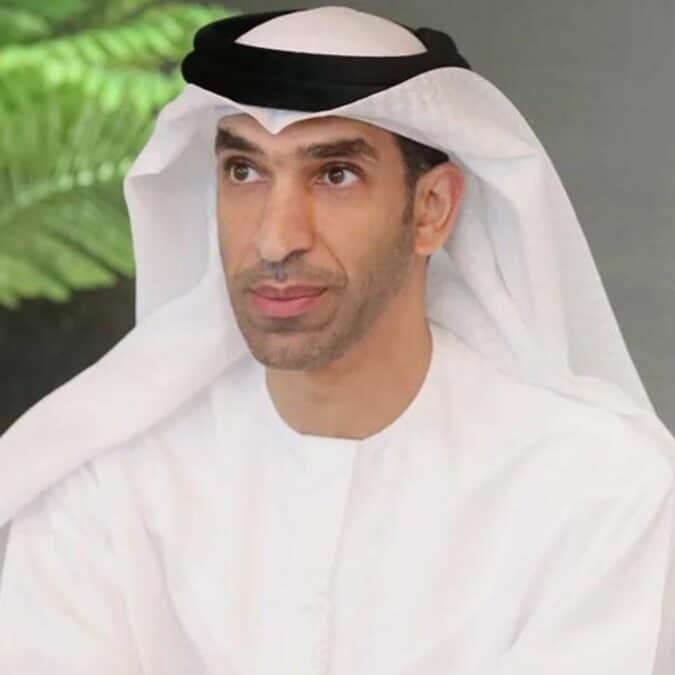DUBAI — Mobilizing global efforts to achieve sustainability of supply chains through digitization and the adoption of advanced technologies is no longer a luxury, but a key factor in overcoming climate challenges, according to Dr. Thani bin Ahmed Al Zeyoudi, Minister of State for Foreign Trade.
Studies by the World Bank indicate that global trade generates up to 25 percent of total carbon emissions worldwide.
Al Zeyoudi mentioned that the UAE, represented by the Ministry of Economy and the Abu Dhabi Department of Economic Development (ADDED), launched the ‘Trade Tech Initiative’ in partnership with the World Economic Forum.
The initiative aims to accelerate the digitization of international supply chains, enhance customs procedures, improve developing countries’ access to the global trading system, and spur a new era of trade growth.

The Trade Tech Initiative is a crucial step in modernizing global trade. It utilizes tools from the Fourth Industrial Revolution to reduce the cumbersome and inefficient paper-based processes that continue to dominate supply chains.
Discussing the future of green trade and its impact on the sustainability of global supply chains, Al Zeyoudi highlighted that green trade, characterized by the exchange of environmentally friendly goods and services, is a major driver for promoting a more sustainable and resilient global economy.
Regarding the role of e-commerce in reducing carbon emissions, Al Zeyoudi noted the rapid growth of e-commerce in line with the technological revolution the world is witnessing. The e-commerce market is expanding rapidly, increasing its share of the total volume of international trade significantly. This surge in digital trade positively impacts carbon emission reduction, as studies have shown that traditional shopping has twice the carbon footprint of online shopping.
He emphasized the importance of considering these changes when discussing ways to reshape the future of global trade, which is precisely what the UAE is aiming to achieve by hosting the 13th World Trade Organization (WTO) Ministerial Conference (MC13) in Abu Dhabi next February. This event is crucial among many other significant issues that the world needs to agree upon to reshape the global trade system and accelerate technological developments.
Al Zeyoudi noted that the UAE, as a hub for global trade, is also experiencing growth in e-commerce. Estimates suggest that the UAE e-commerce market is expected to reach $9.2 billion by 2026.
He highlighted that on the COP28 Trade Day, the Ministry of Economy launched a report titled ‘Exploring the Green Horizon,’ which offers key insights into the intersections of trade with the global sustainability movement.
Regarding the UAE’s contribution to global supply chains, Al Zeyoudi stated that the UAE continues to strengthen its position as a global logistics hub and gateway, facilitating the movement, flexibility, and efficiency of global supply chains. This is thanks to its strategic location at the center of global trade and as a gateway for goods, commodities, and services to and from the Middle East, Asia, and Africa.
Al Zeyoudi added that the UAE is a global center for many basic commodities, playing a central role in global supply chains, with 2.4 percent of the total sea container trade passing through the UAE, making it a pivotal center for supply chains.
Discussing the future of trade at COP28, Al Zeyoudi mentioned that, for the first time in the history of COPs, trade was included in the official agenda of this significant event.
‘Trade Day’ aimed to explore mechanisms for global trade’s contribution to reducing carbon emissions, underscoring the importance of this event as it precedes the 13th WTO Ministerial Conference.
This upcoming conference will review the functioning of the multilateral trading system and deliberate on the future work of the WTO.

